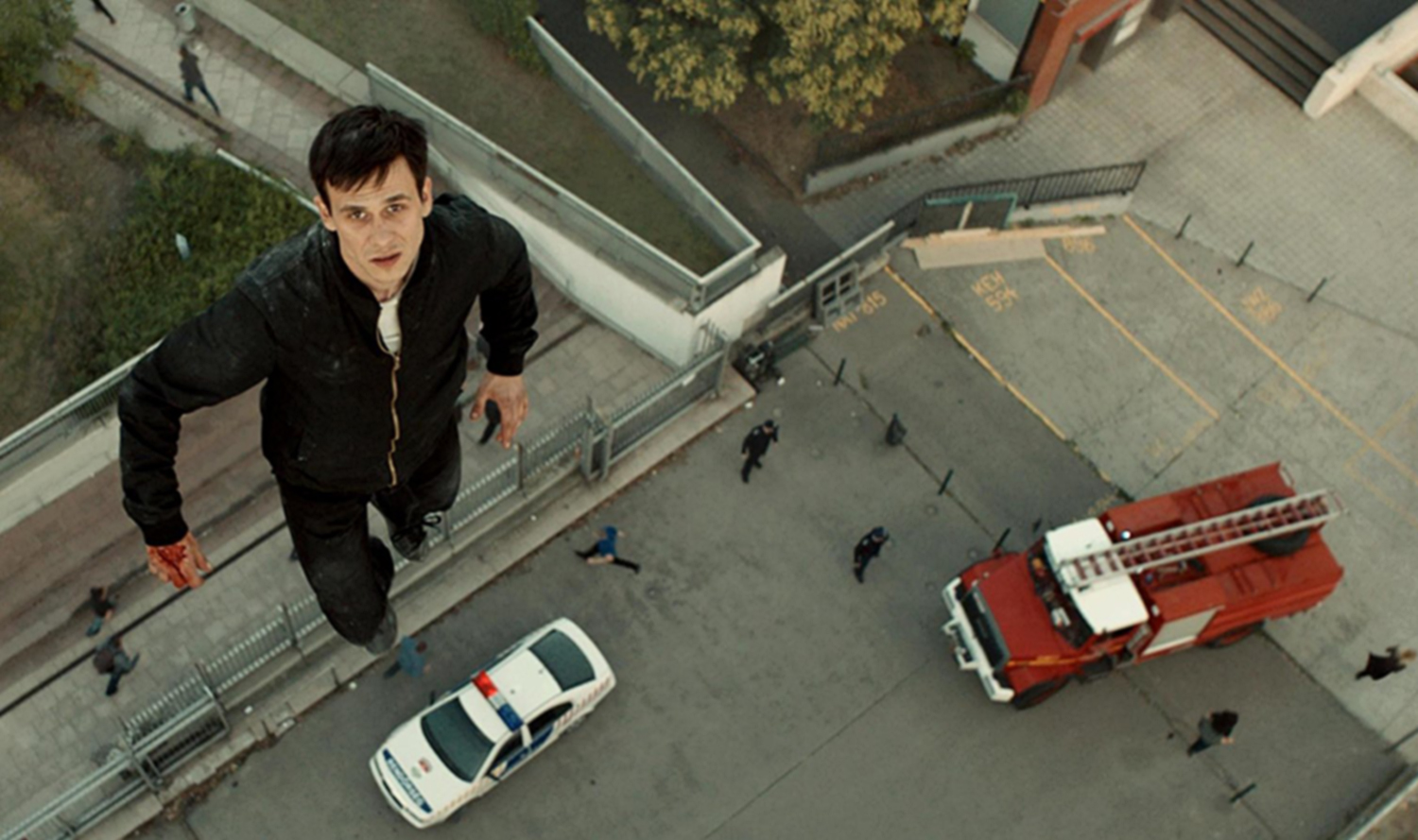
- Golden Globe Awards
Jupiter’s Moon (Hungary)
Jupiter’s Moon is a Hungarian drama directed by Kornel Mondruczo who also co-wrote the film with Kata Weber. The film premiered at the 2017 Cannes Film Festival and competed for the Palme d’Or in the main section. Jupiter’s Moon is a commentary on the treatment of refugees specifically within Hungary and Syria, but it’s truly a statement on the general human condition.Mondruczo artfully paints the heartbreaking – and absurd – story of Aryan, (played by up-and-coming Hungarian actor, Zsombor Jeger) a Syrian refugee who is shot while trying to illegally cross the border into Hungary. The story takes a strange shift when Aryan, frightened and wounded, magically levitates without explanation. He is taken prisoner into a refugee camp until Dr. Stern (Merab Ninidze) smuggles him out to exploit Aryan’s mysterious gift for both personal gains and to ‘cure’ Budapest’s sickly and dying.Directing a politically charged film with elements of magical realism is a difficult, even polarizing project, however, Mondruczo is an accomplished director. He has directed around 17 features and shorts within 20 years, having won the Un Certain Regard prize at the 2014 Cannes Film Festival for White God, as well as the 2008 FIPRESCI Award for Delta.Jupiter’s Moon is a nuanced take on the issues with Syria, specifically the refugee and immigration crisis Hungary faces and its subsequent violence all wrapped up in a stimulating arthouse film. “I wanted to adopt a cinematic language that reflected the chaos, the tension and the pressure that I feel every day in Budapest at the moment,” Mondruczo confessed to Cineuropa. Even the film’s cinematography is a metaphor for the anxiety-ridden daily life in Hungary. The film is both visually astonishing and emotionally wrenching, forcing the viewer to confront their own idea of what is essentially moral. Mondruczo’s refugee, Aryan, is a Christ-like figure; a beacon of hope for the utterly hopeless. As the audience experiences Aryan’s relationship with Dr. Stern, they are taken on a journey through their own emotional comprehension of right and wrong. All of these moral dilemmas exist on the violent backdrop of war and violence. In an interview with Cineuropa, Mondruczo admits, “I wanted to create a story that continually makes people ask themselves the same question: “Should I believe in what I am seeing or not?” Mondruczo completely follows through on his intentions, both with Aryan’s mysterious levitating and with the seemingly unsolvable crisis of violence. The audience is forced to constantly question their own reality; the impact of war on the immigration crisis as well as the glimmer of hope that faith in miracles can provide.“If the film has a message,” concludes Mondruczo, “it’s that this pressure is a reflection of our environment and the fear we feel at the present time. I don’t know if we can escape them, but being up there all the time might be one way of doing that.”